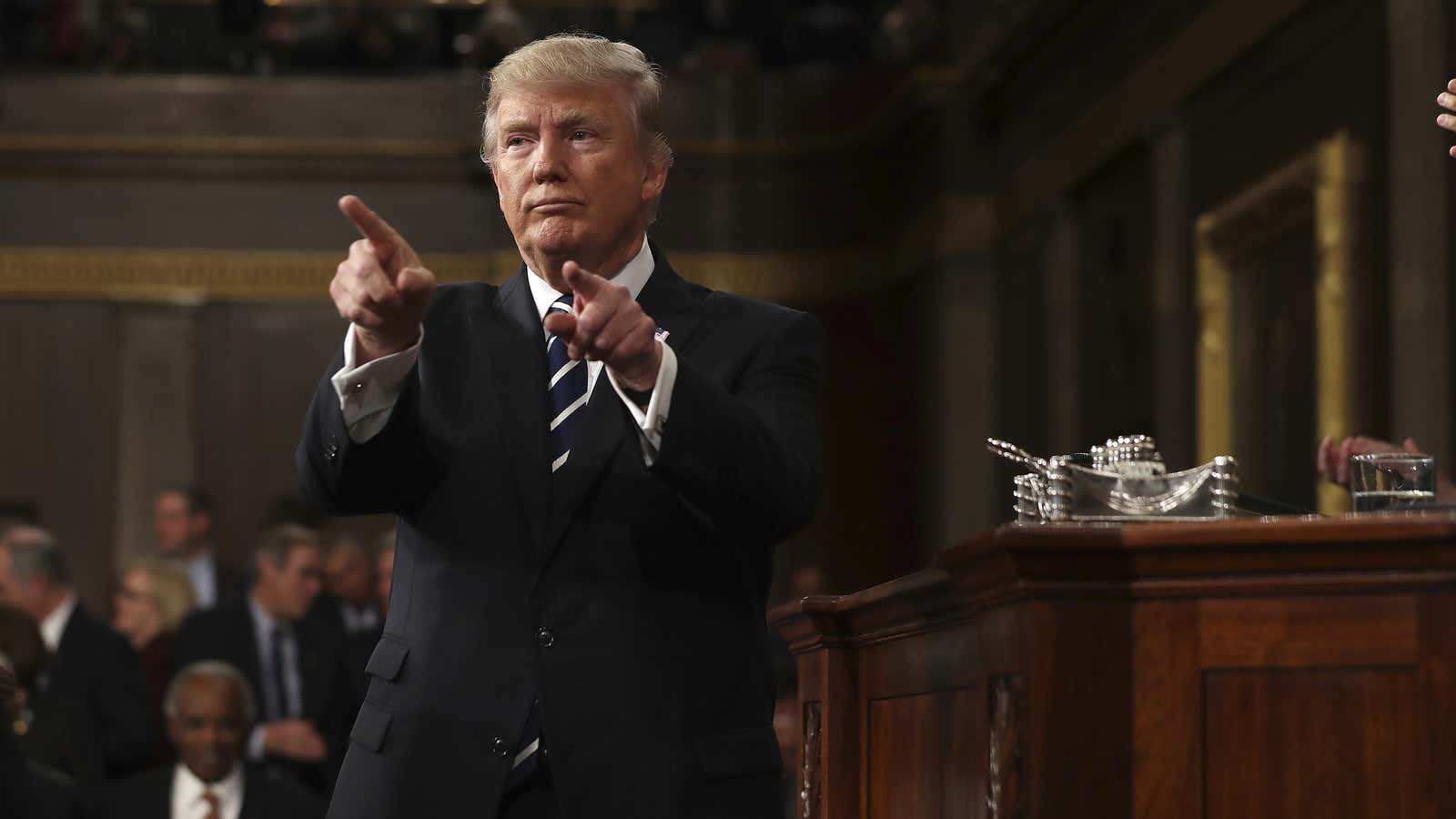The Donald Trump who took the podium on Feb. 28 to deliver his address to the joint session of Congress, many have been quick to point out, was different from the one we’ve seen so far. He stuck to the script. His demeanor was not aggressive. He spent little time attacking the Washington elite, or complaining about the unfair press. He invoked the goals of the civil rights struggle, and abandoned the ominous tone of the “American carnage” discussed in his inaugural address to adopt uncharacteristically hopeful tones.
“Tonight, Donald Trump became the president of the United States,” said Fox News’ Chris Wallace, who had not been soft on Trump during the third presidential debate, which Wallace moderated. He called the speech one of the best addresses a president has ever delivered in that setting. Many others described it as the inaugural address that should have been, noting his tone was more presidential than ever before.
The bar was pretty low, of course. We are used to a president Trump who belittles journalists during his press conferences, and berates his international counterparts during “diplomatic” phone calls. Never mind that the substance of his speech was largely the same as his other speeches about walls and crumbling infrastructure and immigrant criminals. A change in tone was all he would need to overcome everyone’s expectations.
And yet it wasn’t just a change in tone that America saw in Trump last night. The speech also marked a noticeable departure from the populist rhetoric that defined his campaigning, and his first 40 days in office.
John Judis, editor-at-large of Talking Points Memo and author of The Populist Explosion, tells Quartz it’s his impression that “Trump may have figured out that while populism was a good campaign framework, it is not a good framework for governing.”
Though the new president seemed to “frame the first weeks of his administration in populist terms,” Judis says—”running against ‘Washington,’ ‘global elites,’ and ‘the mainstream media'”—he didn’t stick that line during the speech, showing perhaps an awareness that continuing to govern only on behalf of his running base would eventually result in a high political price.
The speech to Congress “suggests he might be trying to build majorities rather than to polarize, that he has recognized that he has the power of the establishment now, and that he can use it to build popular support for his programs,” he says.
Naturally, this is just one speech, making it too soon to tell, Judis says, “whether it’s a turn in the road or a temporary detour.”
